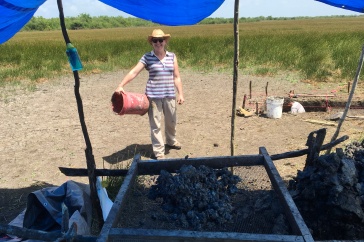
Karen Conway, professor of economics, studies how government policies affect household decisions.
Professor of economics Karen Smith Conway has built a stellar record of scholarship with her research on how government policies affect the most basic household decisions people make, such as where to live, how to spend their time or how much to invest in their health or that of their children.
This work has appeared in dozens of prestigious journal articles, policy briefs, book chapters and conference proceedings.
Funded by the National Institutes of Health, her work has appeared in high-impact publications such as the Journal of Health Economics, Journal of Human Resources, Demography and the National Tax Journal.
“We’re not talking about a trivial sum. The tax breaks for the elderly reduce state income tax revenues by about seven percent on average and as much as 15 percent in some states.”
One aspect of Conway’s current research looks at the evolution and implications of wide-scale elimination of state-level estate taxes and expansion of income tax breaks for the elderly. It promises to have long-reaching impact at a time when many states are pursuing such policies.
“People think the ‘aging of America’ has already begun,” Conway says. “But, believe me, it hasn’t even started.”
When it does, Conway says, state governments are going to need the revenues that an aging population will be called on to provide.
“We’re not talking about a trivial sum. The tax breaks for the elderly reduce state income tax revenues by about seven percent on average and as much as 15 percent in some states,” she says.
The movement to increase tax breaks for the elderly has been guided by assumptions that it stimulates local economic growth, prevents elderly migration to more tax-friendly states and aids vulnerable populations.
The problem with these assumptions, Conway says, is that none stand the test of close examination.
“Tax breaks don’t help local economies, don’t have a meaningful impact on elderly migration and don’t help vulnerable populations. In fact, the economic status of the elderly has significantly improved during these years,” she says.
The upshot?
“The elderly segment of the population is growing in size and economic well-being," Conway says. "They are going to be an important source of state revenues for a long time to come."
-
Written By:
Dave Moore | Freelance Writer
















































